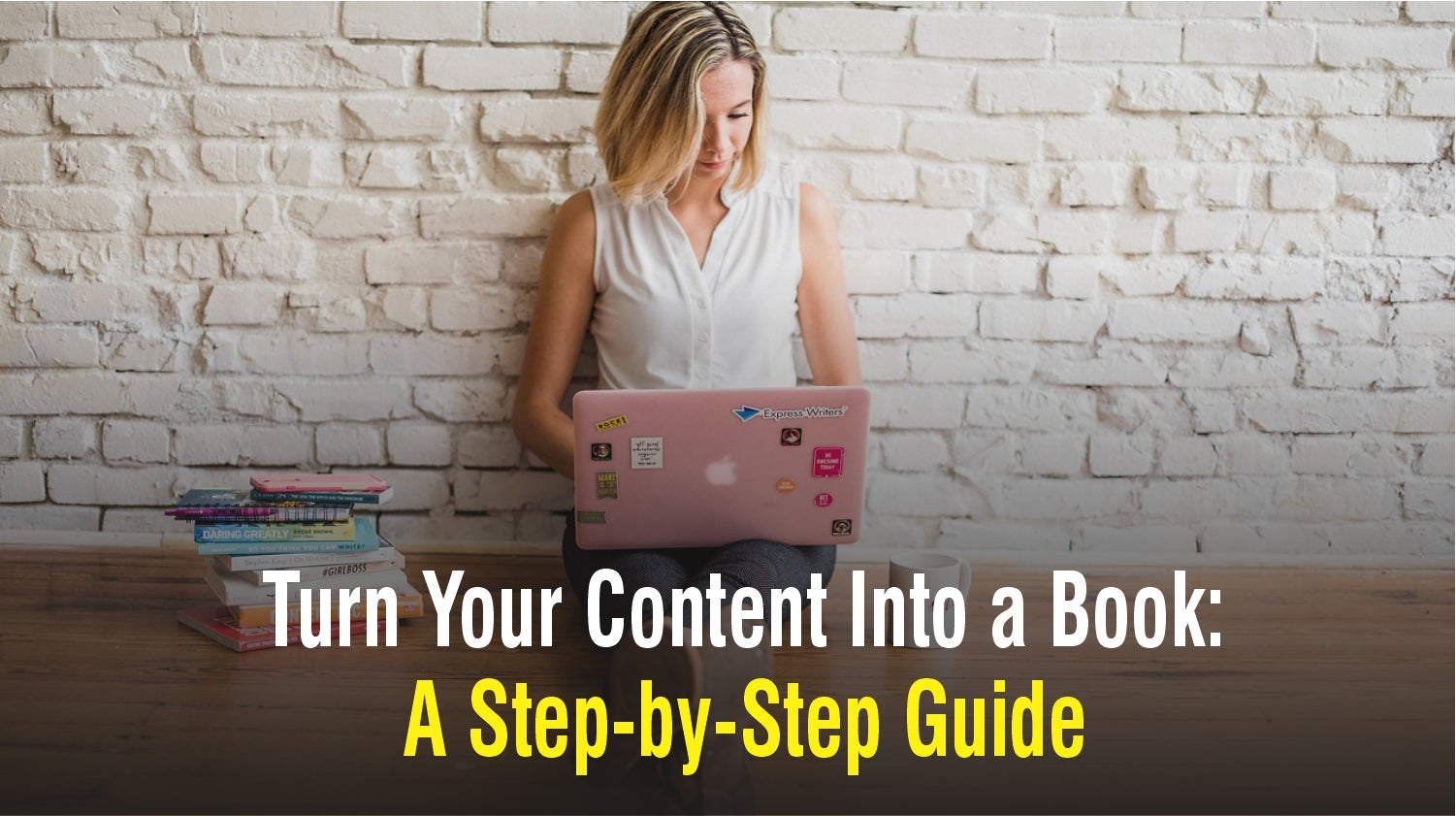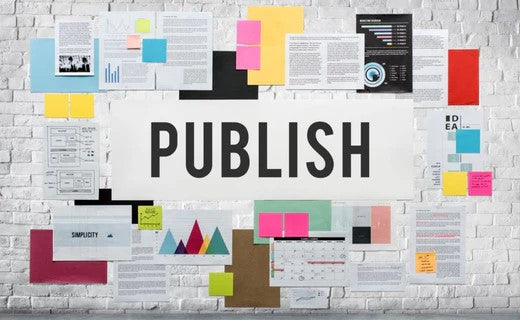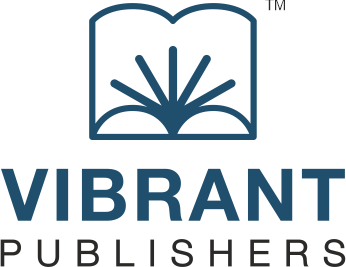Whether you are considering writing a book for the first time or have a finished book in your hands, ready for publishing, you must be immensely proud of yourself; because you are about to set yourself apart from many others in your specialization. Publishing a book helps you build a personal brand while enabling you to share your voice and learnings with a wide audience. This is truly a rewarding experience!
There are several publishing methods and formats available today, each with its unique pros and cons. You may opt for Traditional Publishing (working with a publishing house), Self-Publishing (publishing independently), or Hybrid Publishing, which is a mix of both traditional and self-publishing processes.
In terms of book formats, you may choose to publish an ebook, printed copies with hardcover or paperback, or both. This may also depend on the kind of book you’re writing. For example, if your book is a visual graphic novel, you can go for ebook novels as this format will appeal to children in age groups of 10 to 12 years. While the kind of book you would write, ideally depends on your interests, skills, and expertise, explore niche topics as these topics are known to perform well in the self-publishing segment.
Before you choose where and how you’d like to publish your book, it’s always better to evaluate the best publishing alternatives depending on the nature of your book, for optimal sales.
In this blog, we have described, in detail, the self-publishing process with Amazon’s Kindle Direct Publishing (KDP) platform. Before we see how to publish on KDP, let’s understand what self-publishing means.
What Is Self-Publishing and How Does It Work?
As an author, when you self-publish a book, you are responsible for the end-to-end publishing process. This also means you have greater control over aspects like the subject matter, creative flow, flexibility of timelines, and release dates.
You may do the heavy lifting yourself including editing, cover design, and marketing, or get professional help for these tasks. In return, you get complete ownership of your book along with higher royalty rates.
Platforms like Amazon KDP bring self-publishing to your fingertips. You can publish any type of content on KDP including novels, book series, textbooks, comics, children’s books, poetry, and more. Next, let’s discover what is KDP and how to go about publishing books with it.
What Is KDP and How Can You Self-Publish on KDP?
Kindle Direct Publishing by Amazon is a self-publishing platform that offers all the tools you need to format your book, publish, and distribute it globally. It helps you to publish ebooks, print-on-demand paperbacks or hardcover books, serialized stories, and also episodes with Kindle Vella. Publishing on Amazon’s KDP is free, apart from the printing costs deducted from royalties, in the case of paperback and hardcover books.
While self-publishing has many benefits and offers a great extent of control to authors, the process from start to finish, has quite many steps to follow. But tuning in to our guide as explained below, will simplify your self-publishing experience significantly and answer your questions on ‘How do I sell a book on Amazon’. Let’s begin.
Please note, that the information in this guide has been entered based on Amazon’s Kindle Direct Publishing website, at the time of writing this blog. Amazon constantly updates its guidelines. Therefore, please cross-check the information from their website. Publishing with Amazon’s Kindle Direct Publishing is different from Amazon’s traditional publishing. This guide is about Amazon’s Kindle Direct Publishing.
Steps to Publish Your Book on Amazon
Step 1: Getting Publish-Ready
The first step for publishing your book on Kindle Direct Publishing (KDP) is to set up your KDP account. However, before you do that, it will be helpful to have certain details ready, as covered in this section. These details are also known as Book Detail Resources or Metadata, and most of them cannot be edited or updated after publishing. Therefore, it’s important to review them thoroughly and keep them ready well in advance.
You may also go through the KDP Jumpstart page to get a quick overview of the self-publishing process on Amazon KDP.
Once you start entering information on the KDP page, be sure to click “Save as Draft” when you stop in between the process.
Book Titles, Subtitles and Edition
The book title refers to the actual title as it appears on the cover of your book. Book titles must be the same across all formats, including hardcover, paperback, and ebook versions. Amazon provides a specific list of guidelines for titles as best practices to be adhered to.
If you publish a new version of the book with the same title, that version will be published as a new edition on KDP. Also, ensure to match your book’s primary language selection consistently across all the places including the metadata and on the bookshelf.
Author Profile and Author Page
While publishing on KDP, take the time to decide on the exact author name you’d like to add, as this is one of the most common ways customers search for your book. Moreover, this field cannot be changed after your book is published. Also, if you have other books on Kindle Direct Publishing, ensure to use a consistent author name across all books.
This way, when customers search for your books, they can see all the books published by you on your ‘Author Page’ via the Author Central account on KDP. Every book on your author page will have a detailed page that you can enhance through the main author page.
If your desired ‘Author Name’ is similar to another existing author name on KDP, you may opt for a pen name, unique initials, or middle name. After setting up your Amazon Self-Publishing account in the next stage, you can complete your Amazon author profile including your bio, photo, website, and payment details.
Book Description
The book description is like a window into your book and should spark curiosity while also outlining the theme and genre of the book. It appears on your book’s detail page. Write an easy-to-read, interesting, and impressive book description in about 150 words on Amazon KDP, to offer a quick insight into your book. There is a character limit of about 4000 characters for adding a book description. Also, avoid grammatical errors, and typos and get it proofread by a trusted person to enhance readability for the reader.
Keywords
Keywords are search terms used by customers when they are looking for items online. To list down your keywords and create logical word/ phrase combinations, put yourself in the reader’s shoes and think about how you would search for a book. Think about words describing the user problems your book is trying to solve. When framed smartly, keywords can describe your book’s content accurately while improving your book’s online visibility.
In addition to reviews and the online performance of your book, keywords enhance your book’s searchability on Amazon. You can create up to seven keywords (within the mentioned character limit on KDP), do a search trial before publishing to see if you get the desired search results, and then amend accordingly. Scroll down on Amazon’s keywords guidelines page to see how you can create the best-performing keywords to improve your book’s online reach.
Categories
Placing your book in the right categories and sub-categories is an important step as it determines where customers will ultimately find your book on Amazon. You can mark up to three main categories to position your book on the Amazon store. The categories section also gives you insight into all the books that will compete against your book, helping you to strategize your marketing efforts better.
Reading Age and Target Audience
Under this section, you will need to specify your target audience with the help of age groups, for example; if the book is meant for children or adults, by filling up details about the contents of the book.
As a book author, you may have a certain target audience in mind for your book, based on the groups of people that will be interested to read your book. This also helps you to build marketing strategies based on their demographic characteristics.
In addition to confirming the book's contents, entering the reading age will make customers aware of your intended audience. It will also ensure your book appears in the right age-specific search results on Amazon.
Here, it must be noted that, at first, you are required to enter the reading age manually. However, over time, Amazon adjusts the recommended reading age of your book according to the age ranges mentioned in customer reviews.
Writing and Editing the Book
The foundation of a book’s success is laid by how well it’s written, edited, and proofread. A captivating storyline, enticing characters, and an interesting, conversational creative flow capture the reader’s attention. Further, put your book through multiple levels of editing and proofreading with a set of fresh eyes to refine the content and flow of the book. Take the time to check grammar, punctuation, and sentence structure, to ensure your readers receive an enriching reading experience.
When it comes to seamless editing and proofreading, traditional publishing can save you significant time and effort. Experienced publishers such as Vibrant Publishers offer professional editing with their publishing services that simplify your job to a great extent and ensure your book is published seamlessly.
Cover Design
“Not judging” a book by its cover may be easier said than done. Especially, when it comes to first-time authors, who are yet to establish a reputation for their writing, a cover is often one of the most vital factors in how well their book may sell. It offers them a chance to set their book apart from the others in the competition.
To create the cover of your book, you may opt for KDP’s free cover creator, create a cover on your own based on guidelines provided by Amazon KDP, or outsource the design work to an external professional. The aim is to create an eye-catching book cover that invites the reader and evokes curiosity to purchase the book.
Lastly, on KDP’s site, you can also refer to their detailed publishing guidelines on various aspects such as navigation, HTML, and CSS Guidelines, Accessibility Guidelines, and more.
Now that you have all these details ready, let’s see how to create a KDP account with Amazon and kickstart the process of self-publishing your books online.
STEP 2: KDP Account Creation
Creating an account on Kindle Direct Publishing is quick and straightforward. You can ‘sign in’ or ‘sign up’ depending on whether you have an existing Amazon account. Next, you can follow the prompts and create/ log in to your KDP account for free. Further, you will need to enter additional details to complete your account and tax information, along with banking information to get paid as an Amazon author subsequently.
Book Upload, Preview, and Formatting
If you’d like to create books in all formats including ebooks, paperbacks, and hardcover formats, ensure you add all the formats and link them together in your KDP account. Click on the ‘+Create’ option in the Bookshelf tab on Kindle Direct Publishing (KDP) to create a new book.
Uploading, previewing, and formatting requirements vary across ebooks, hardcover, and paperback formats on KDP, so take the time to check guidelines applicable on a case-to-case basis. EPUB and MOBI formats are supported for ebook manuscripts, considering they meet the Kindle Publishing Guidelines. Additionally, based on the ebook Manuscript Formatting Guide, certain doc/docx files can also be converted to ebooks on KDP.
Otherwise, you can opt for Kindle Create and upload your file using Kindle Package Format (KPF). There are also some other formats you can rely on such as HTML, PDF, and more for ebooks. When it comes to uploading manuscript files for paperback and hardcover books, there are some detailed formatting nuances on Amazon KDP.
Once your manuscript file formats are in place, it’s now time to upload your file to KDP’s Bookshelf. Ensure to select the right file from your desktop, and use the Kindle Previewer to check if your file has been uploaded successfully. You can also check the output of your book on various devices, and the quality of ebooks using their online previewer tool. Further, be sure to select the Digital Rights Management (DRM) option to prevent people from plagiarizing your book. The DRM setting cannot be changed after the book is published.
To deploy Amazon’s formatting tools for manuscript and cover formatting, check out KDP Tools and Resources.
Working out ISBN details
An ISBN, or International Standard Book Number, is a specific number given to every published book that enables the identification and search of books globally with ease. Since it’s a unique code, ISBN guidelines mandate that the same ISBN code cannot be reused for another book whose contents differ from the original book.
You do not need an ISBN to publish ebooks on Amazon Self-Publishing, but for paperback and hardcover books, you will need an ISBN. If you’re a KDP author, get a free ISBN from KDP or reach out to Bowker to purchase an ISBN at discounted rates. In addition to ISBN, barcode requirements also need to be adhered to, while publishing on KDP.
STEP 3: Pricing, Marketing, and Distributing with KDP
Self-publishing with KDP also means you need to make smart decisions on pricing, marketing, and distribution aspects, as these factors play a critical role in the success of your book. Let’s look into each of these factors in the below section:
Pricing and Royalties
You are required to add the list price of your book, which must be within KDP’s minimum and maximum list price range, and is based on marketplaces. The list price can be decided based on the book’s characteristics such as the genre, target audience, and author’s reputation. You can edit the list price on Kindle Direct Publishing even after your book is published.
Having added the list price, the next step is to select the royalty plan for your book, which will determine the percentage of your earnings on every book sale after you meet the minimum threshold for payment. For ebooks or digital books, you can opt for either a 70% Royalty Option or a 35% Royalty Option. The 70% royalty option is applicable for the sale of ebooks in certain territories only. The 35% royalty option can be selected for sale to all customers, irrespective of any territory.
For hardcover books sold on Amazon marketplaces, KDP offers a fixed 60% royalty rate. For paperback books, the applicable royalty rate is also a fixed 60% for Amazon marketplaces and distribution channels. On the other hand, for paperback books opted for expanded distribution, the royalty is 40% of the book's list price. Printing costs are deducted by KDP for both hardcover and paperback books. Additionally, a small distribution fee may be deducted from every sale, even for ebooks.
Owning the rights to your book, allows you to publish on KDP and other platforms simultaneously unless you have opted to enroll your ebook in KDP Select, making it Amazon-exclusive. Opting for KDP Select is not mandatory and can be done even after publishing.
Promoting your Book
There are several key promotion channels to promote books on Amazon which include KDP Select, Author Central, Gifting of Books, Expanded Distribution, and Amazon Advertising. There are also other tools such as Kindle Countdown Deals and Free Promotion options as part of KDP Select which enable you to provide attractive offers and discounts to your potential customers. You can also self-promote your books using social media platforms and blogs to build a community of loyal followers over time.
Marketing and Distribution
Marketing is essential to your publishing process, especially if you’re a first-time author. To improve the visibility of your book on Amazon and market it better, you can refer to Merchandising Tips. Also, Kindle Unlimited and Kindle Owners' Lending Library are unique distribution channels to enhance your book’s reach. Moreover, distribution channels such as ‘Expanded Distribution on KDP’ enable you to reach a wide audience by presenting to large distributors beyond the Amazon marketplace. Further, you can gain insights from the KDP Community to explore marketing ideas leveraged by other Amazon KDP authors.
When it comes to distribution rights for ebooks, during the title setup, you are required to declare the territories where you have electronic publishing rights. For paperback and hardcover distribution rights, you may add the rights separately. Otherwise, KDP adopts the default settings from your ebook distribution permissions.
In terms of marketing and distribution, a traditional publisher offers a competitive edge to your book by helping it reach a wider audience. They are better connected with book fairs, tours, conferences, libraries, and bookstores. Further, by offering long-term sales support, traditional publishers continue to support a book's sales long after its initial release.
Release Dates and Pre-order
KDP provides you with the option of releasing immediately, or scheduling a release date up to 90 days in advance, and also with the option of setting up pre-orders of ebooks. You can opt for any of these release options based on your marketing strategy.
Scheduling a release date in advance helps you market the book better with author copies, thereby offering greater control on social media marketing and on your own sites as well. Also, the timer option on Amazon creates increased excitement for the book launch, enhancing your book’s sales performance on the launch date. The Kindle ebook pre-order tool allows customers to pre-order your books before the release date, contributing to sales ranks on KDP even before the launch of the book.
Additionally, you can also order proof copies as test copies of your paperback or hardcover books to see how they look before publishing.
STEP 4: Monitoring Sales Through Reports
With KDP Reports you get access to a wealth of data such as order reports, promotion reports, pre-order reports, royalties and payment reports, old sales reports, and more. The Reports Dashboard offers different views with diverse insights, in downloadable formats for analysis. For example, you can view a 30-day trendline of orders and Kindle Edition Normalized Pages (KENP) reads data on the dashboard to devise marketing strategies.
But it’s up to you to invest the time and effort to analyze this data and customer reviews, assess how your book’s monthly sales are doing, and customize your promotional activities. You can also make the careful decision of updating your book’s content, formatting, cover design, and more, one at a time, to see if it’s positively impacting your book’s sales.
Additionally, pay attention to Amazon’s rules if you’ve missed something earlier and to policy updates that may directly or indirectly update you. You may also refer to Amazon’s Help Center for more information on any of the aspects to streamline your self-publishing process.
By following this step-by-step guide on publishing with Amazon KDP, you can ensure the successful and timely publishing of your book.
Self-Publishing Vs. Traditional Publishing
At the beginning of this blog, we saw what self-publishing means, and how it has many benefits, including increased control over the publishing process, ownership of book copyrights, and higher royalties. However, one must recognize the time-consuming process of self-publishing and its difficulty level for the author. It requires authors to don multiple hats including not only that of a writer but also of an editor, marketer, designer, and publisher. This can get exhausting, especially for first-time authors.
On the other hand, traditional publishing reduces this burden. It assists both inexperienced and established authors with professional support at every stage. It is a process where the author is only responsible for writing the manuscript and submitting it to a publishing house. Further, the publishing house looks after the editing, production, marketing, and distribution of the book.
A reputable publishing house does not interfere with the author’s creative control or the subject matter of the book, instead, it ensures a polished final product by offering a team of editors, designers, and marketers. This ensures that the book meets high standards while reaching the target audience effectively without any hassles.
With established distribution networks, traditional publishing broadens your book’s reach to global bookstores, libraries, and academic institutions. It provides expert marketing resources and credible professional backing to boost your book’s visibility across all channels!
Moreover, the time required to self-publish a good book may almost be the same as that of traditional publishing, which goes from months to a year. So, why not let experts at a publishing house do it for you?
Email us at reachus@vibrantpublishers.com to discuss publishing with Vibrant Publishers.
About Vibrant Publishers | Why You Should Trust Us
Vibrant Publishers is a one-stop destination for authors seeking to share their expertise with the world through a professional and streamlined publishing process. We are a Colorado-based publishing house, established in 2011, with a mission to produce high-quality books tailored for entrepreneurs, IT professionals, management experts, graduate students, and competitive exam aspirants. With 200+ published titles available in more than 100 countries, Vibrant Publishers has earned its place as a global leader in niche publishing.
We have worked with renowned authors like Jagdish Sheth, Dr. Michael Walsh, Mark Koscinski and other esteemed authors who are industry experts and distinguished leaders in their respective fields. Read more about them here. We’re part of a robust community of over 100,000 professors who highly commend our books and also review and adopt them. When you onboard with us as an author, you can be assured of exceptional support through all stages of publishing from editing, and book cover designing to printing, marketing, and distribution.
At Vibrant Publishers, we are committed to quality and excellence, making your publishing journey successful and rewarding.
Email us at reachus@vibrantpublishers.com to discuss publishing with Vibrant Publishers.












